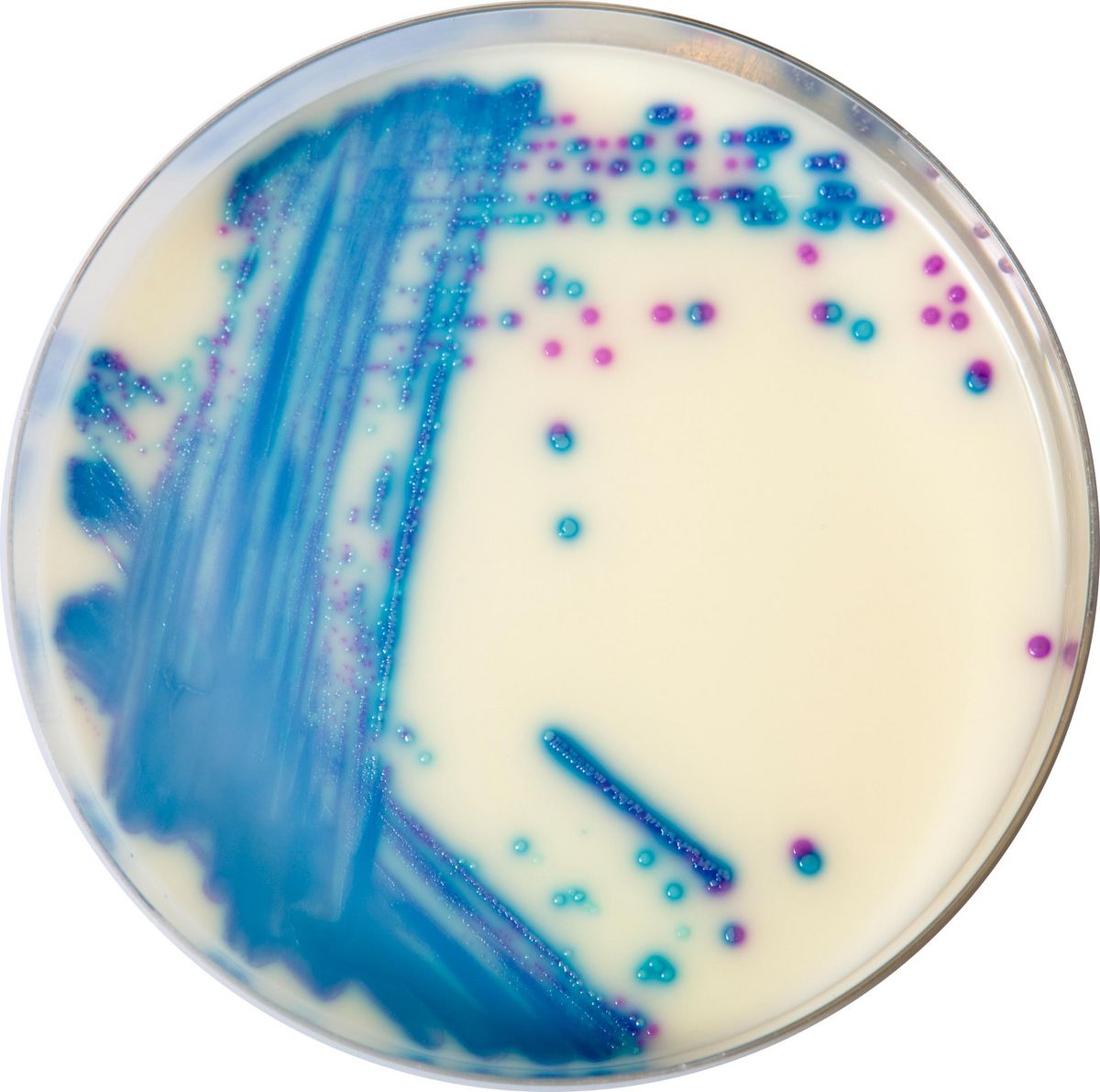
VR952
For detection of Van A/Van B VRE (transmissible resistance = VRE. faecalis & VRE. faecium)
Package size: 5000 ml
DKK 3.000,00

Not in stock, delivery 1-2 weeks
Chromogenic medium for detection of Van A/Van B VRE (transmissible resistance = VRE. faecalis & VRE. faecium).
The product is composed of a powder base (B) and 1 supplement (S).
MEDIUM PERFORMANCE:
1. Simple, fast and reliable tool for the direct detection of VRE strains with transmissible resistance: this is a precious help in the implementation of the appropriate control measures to prevent the spread of VRE.
2. Intense colony colours: in the new CHROMagar™ VRE media, VRE. faecalis and VRE. faecium strains are easily distinguishable by the colony colour. In the contrary, in the classical agar for the detection of VRE (Bile Esculine Agar supplemented with vancomycin), there is no differenciation between E. faecalis/E. faecium and the other enterococci; it often leads to false positives of other esculine hydrolising bacteria (like lactococcus, pediococcus,…); the black “cloud” makes plate reading difficult as well as the choice of the proper colony for further confirmatory tests.
3. Flexibility: CHROMagar™ VRE is supplied with a more than 18 months shelf life. This allows for flexibility of use, whether in an epidemic situation with many patients to screen, or whether for random surveillance of cultures.
Typical Appearance of microrganisms:
VRE.faecalis/VRE.faecium → pink to mauve
E. gallinarum/E. casseliflavus → blue or inhibited
Other bacteria → inhibited
There are two types of vancomycin resistance in enterococci. The frst type is intrinsic resistance (mostly Van C type but also Van D, Van E, Van F, etc) found in E. gallinarum and E. casselifavus/E. favescens and demonstrates a low-level resistance to vancomycin. The second type of vancomycin resistance in enterococci is acquired resistance (Van A & Van B types), mostly seen in E. faecium and E. faecalis. Therefore, to avoid the spread of this resistance to more virulent pathogens (S. aureus, for instance) it is crucial to promptly detect the presence of any of these two species in the patent, and accurately diferentate them from other Enterococci.
Also available in 5000 ml (VR952)